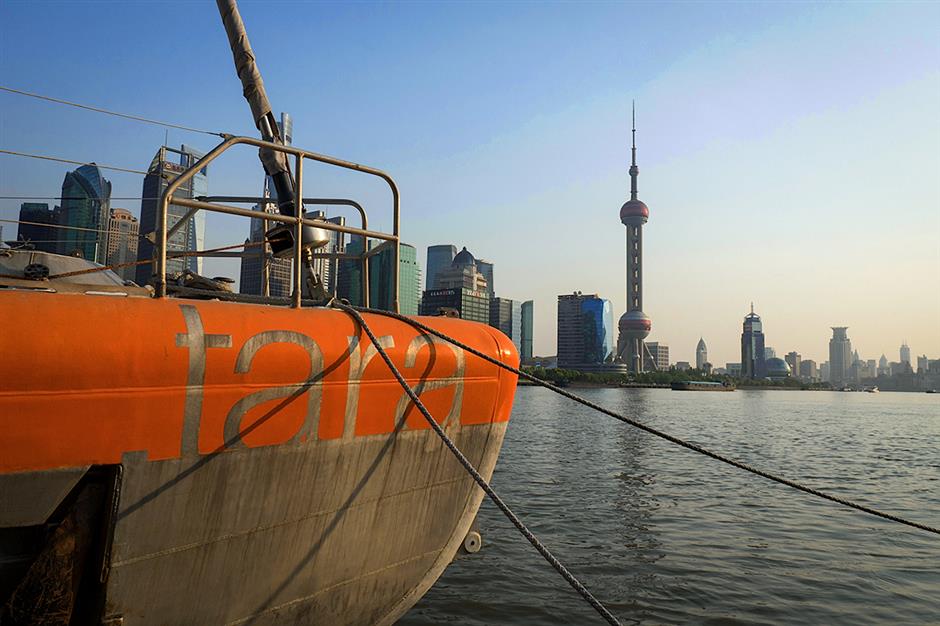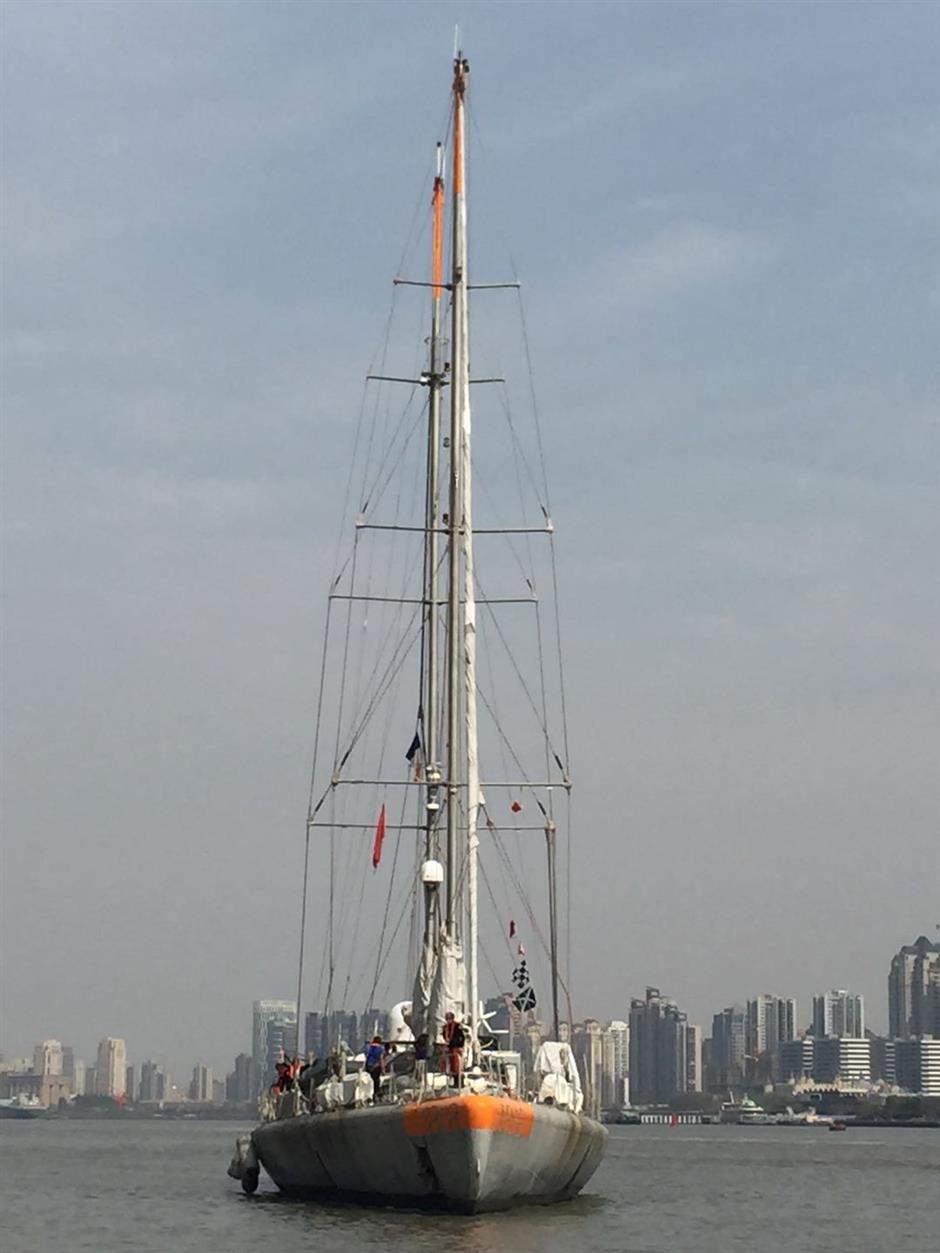French scientific marine expedition vessel Tara in town

The French scientific marine expedition vessel "Tara" is in Shanghai for a two-week stopover.
The French scientific marine vessel "Tara" is in Shanghai for a two-week stopover during its first expedition to the Chinese mainland.
The visit is expected to enhance Sino-French cooperation in the areas of marine research and environmental protection.
Scientists from Tara have cooperated with Shanghai experts on anti-aging and tumor prevention research. Coral and sponge samples collected by Tara were studied for their longevity in an attempt to utilize their properties for human benefit.
About 5,000 samples of coral and 3,000 samples of sponge have been sent to the Sino-French Research Center for Life Science and Genomes at Shanghai’s Ruijin Hospital.
“The aging process of humans is related to genes, life style, epigenetic inheritance and the environment. But we still have a poor understanding of the aging process,” said Lu Yiming, the center’s director.
“There is more and more aging research undertaken on special species, especially marine organisms including coral, sponge and fish. Their complicated evolution and mechanisms control development, injury repair and aging. Research on the long life of marine animals has strong potential for anti-aging studies in humans.”
Lu’s center is studying the telomere of the samples, which can indicate the physical life span of an animal.
“We want to study the differences between coral and human telomere and use it as a research target for human anti-aging and tumor prevention,” Lu said.
During the Shanghai stopover, some students were invited on-board to learn about the richness of the ocean and the importance of protecting it.
Before Shanghai, the vessel visited Xiamen. It will leave Shanghai on April 29.
The China visit, supported by L’Oréal, is part of the schooner's 100,000 kilometer Pacific expedition focusing on research covering climate change and the state of coral-reefs. This is also the first comprehensive survey of coral reefs in the Pacific.
Scientists said it was alarming that many of the coral reefs that Tara has visited have degraded due to factors ranging from global warming and overfishing to pollution discharge.
They said coral reefs were not only the ecosystem nurturing one-third of marine creatures, but that they also absorbed carbon dioxide to curb global warming. Thus it is imperative to take action to protect the marine environment and create greater awareness in people about such issues, the scientists said.
The creation of an open and inclusive platform for cooperation and seeking even more effective ways of marine protection and marine education are now more important than ever.
"The ocean is an ecological resource that human life depends on, and there is an urgent need to explore, analyze and resolve the various threats that lie beneath the calm seas," said Romain Troublé, General Director of Tara.
"At the same time, we hope to work with more partners to guide the younger generation to develop greater and more comprehensive ecological awareness, and to transform environmental protection into conscious behavior in daily life. This will allow the ocean to remain the cradle of life for the foreseeable future, as well as become a strategic space that can support future human development."

Some students were invited on-board Tara to learn about the richness of the ocean and the importance of protecting our vulnerable marine environment.

The French scientific marine expedition vessel "Tara" is in Shanghai.















